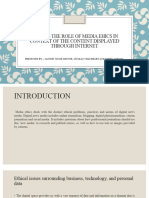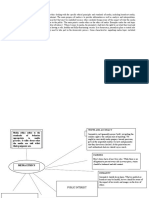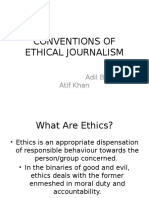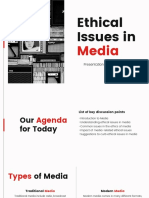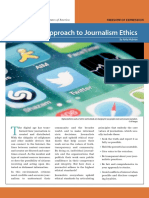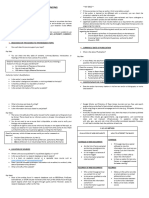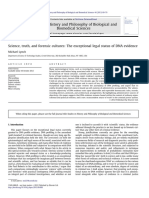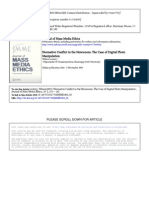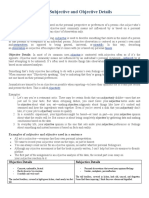0% found this document useful (0 votes)
232 views5 pagesMedia Ethics
The document discusses core ethical principles for media professionals including truthfulness, fairness, independence, accountability, and objectivity. It also covers challenges like balancing speed and accuracy in reporting, maintaining privacy, dealing with emerging issues like digital media, and using techniques like hidden cameras which require weighing privacy and public interest.
Uploaded by
verajk2004Copyright
© © All Rights Reserved
We take content rights seriously. If you suspect this is your content, claim it here.
Available Formats
Download as PDF, TXT or read online on Scribd
0% found this document useful (0 votes)
232 views5 pagesMedia Ethics
The document discusses core ethical principles for media professionals including truthfulness, fairness, independence, accountability, and objectivity. It also covers challenges like balancing speed and accuracy in reporting, maintaining privacy, dealing with emerging issues like digital media, and using techniques like hidden cameras which require weighing privacy and public interest.
Uploaded by
verajk2004Copyright
© © All Rights Reserved
We take content rights seriously. If you suspect this is your content, claim it here.
Available Formats
Download as PDF, TXT or read online on Scribd
/ 5
